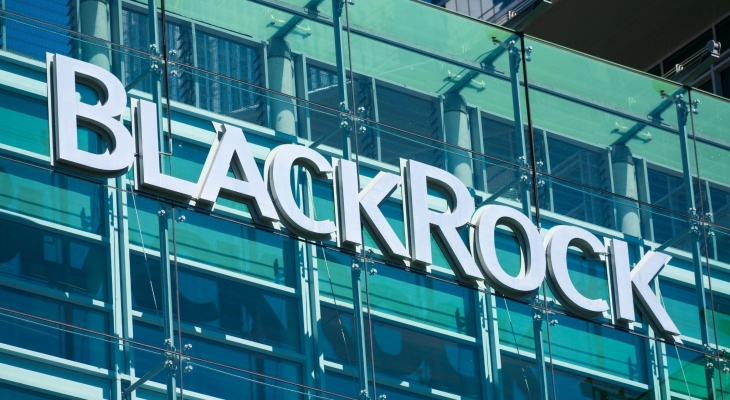
Key Takeaways:
- Tokenizing real-world assets (RWAs) involves digitally representing the ownership of hard assets (such as real estate, art, or contracts) as on-chain tokens.
- Tokenization can streamline the trading of stocks and bonds, facilitate fractional ownership of collectibles, provide investors exposure to commodities, and give inventors and artists ways to monetize their creations.
- Tokenization is also being used in security, gaming, NFTs, and real estate, to name a few.
- For investors, tokenization offers reduced risk, increased efficiency, and the opportunity to access alternative investments, making it easier to diversify your portfolio.
- The transformation of real assets into blockchain-based tokens can help reshape the crypto investment landscape by putting everything on-chain.
While real-world asset (RWA) tokenization has existed since 2017, it hasn’t caught on with the masses yet. But when BlackRock, the world’s largest asset manager, unveiled its first tokenized fund called BUIDL, the market got excited about this new class of assets.
BUIDL operates on the Ethereum blockchain and allows institutional investors to earn yields on US dollars through tokenized RWAs. BUIDL could ignite the mass adoption of investing in RWAs via tokens.
Here’s your guide to investing in RWA tokens.
What is Real-World Asset Tokenization?
Real-world assets (RWAs) refer to any “real” assets that are bought, sold, or traded: think land, commodities, precious metals, etc. An RWA may be either physical or digital.
Tokenization refers to converting a real-world asset into a bunch of digital tokens on a blockchain, just as one might convert a company into shares. Just like traditional stocks, tokenization lets people buy a fraction of an asset (like a token representing 1/1000th of a real estate parcel). This “fractional ownership” allows more investors to participate at a lower price.
In short, any asset can be tokenized and traded on a blockchain.
The Benefits of Tokenization
Let’s examine some of tokenization’s top benefits to understand its power.
- Ease of Use: Tokenization offers enhanced liquidity, making it easier to buy, sell, and trade RWA assets. For example, traditional real estate investments are typically lengthy and complex, and require selling an entire property. With tokenization, however, investors can buy and sell tokens that represent fractional ownership quickly and easily.
- Accessibility: Tokenization also allows for improved accessibility, as a broader range of investors can participate. Whereas traditional real estate investments can cost hundreds of thousands of dollars or more, tokenization allows investors to participate for a fraction of the cost due to partial ownership via digitized tokens.
- Fee Reduction: Tokenization helps to reduce fees and overhead. Let’s say someone was investing in a high-end piece of art. If they were investing traditionally, they would have to worry about shipping costs, costs associated with documentation, and more. With tokenization, many of these costs and fees can be eliminated.
- Transparency: Tokenization also allows for increased transparency, as blockchain technology provides an immutable record of transaction history and asset ownership, helping to reduce the risk of fraud, forgery, and dispute.
- Composability: Tokenization unlocks new possibilities for composability. RWA tokens can be integrated into the broader DeFI ecosystem and serve as a financial building block: for example, you can borrow against your RWA tokens, using them as collateral.
Case Study: BlackRock’s Entry into Tokenization
BlackRock, the world’s largest asset manager, owns the BlackRock USD Institutional Digital Liquidity Fund (BUIDL).

BUIDL invests in US treasury bills, repurchase agreements, and cash. It has a minimum investment requirement of $5 million and issues BUIDL tokens on the Ethereum blockchain with the help of Securitize, a US digital assets securities firm.
Rather than invest in all these real-world assets directly, investors can simply buy the BUIDL token and get instant access to the entire portfolio.
BUIDL is unique because it gives investors a secure and transparent platform for earning US dollar yields with enhanced liquidity and immediate settlement. Additionally, it complies with SEC regulations for issuing shares and ensuring investor protection. It also aims to maintain a stable token value of $1 per token and pays dividends monthly as new tokens.
Another thing that sets BUIDL up for success is its strategic partnerships. In addition to Securitize, BlackRock has partnered with Coinbase as its infrastructure provider and Fireblock, BitGO, and Anchorage Digital Bank NA to secure and manage the fund’s operations.
Since its launch, BUIDL has been wildly successful, attracting $245 million in deposits from seven investors in its first week. One of the investors, Ondo Finance, shifted $95 million into a BUIDL fund. On April 11, stablecoin issuer Circle announced it would launch an intelligent contract service allowing BUIDL users to convert BUIDL tokens to USDC instantly.
Because BlackRock is the world’s largest asset manager, it has a significant influence and an esteemed reputation within the financial industry. After its debut, there was a notable surge in RWA tokens across the crypto market. Notable risers included Centrifuge (CFG), Polymesh (POLYX), and Ondo (ONDO), each experiencing significant gains averaging over 30%.
We expect to see RWA tokenization gaining continued adoption, as BlackRock has now given the rest of the financial industry a model for pursuing RWAs.
Crypto Projects Tokenizing Real-world Assets
There are several RWA tokenization projects investors should be watching. We recommend checking out the following:
 Polymesh (POLYX)
Polymesh (POLYX)
Polymesh, a blockchain focused on security tokens, recently unveiled Polymesh Private, a private, permission-based blockchain for financial institutions embarking on RWA tokenization. Businesses can initially leverage the private permission-based network and then transfer to the public network when ready (or remain on the private network indefinitely).
As the overwhelming majority of RWA tokenization by banks and other large financial institutions still takes place on private blockchains, Polymesh seeks to meet institutions where they are by providing a smooth transition to the public domain.
As mentioned, Polymesh saw a considerable boost after the launch of BUIDL, with its price jumping 80% in the middle of March. We expect to see Polymesh grow as the adoption of tokenized RWAs increases.
 Ondo (ONDO)
Ondo (ONDO)
In April 2024, Ondo Finance announced it would partner with asset-issuance chain Noble to bring tokenized US treasury offerings to the Cosmos blockchain ecosystem. The expansion to Cosmos means Ondo’s token offerings will be integrated into over 90 blockchains, boosting adoption for its products backed by US treasuries.
Ondo is one of the largest players in the tokenized treasury market, as it has attracted over $300 million in deposits since debuting in 2023. Its partnership with Noble now puts Ondo in a strategic position for global expansion.
 Realio Network (RIO)
Realio Network (RIO)
Founded in 2018, the Realio Network is a DeFi marketplace that seeks to democratize access to real estate and other real-world assets. It offers an open-source, permissionless structure that combines traditional asset management with advanced blockchain technology.
One of the most compelling features of RWA tokenization that Realio takes advantage of is fractional ownership, which allows investors to hold tradable, fractional shares of real estate assets. This can help democratize access to potentially lucrative real estate investments, making them available to a wider audience.
Realio has put itself in a unique power position to streamline and transform the real estate industry through blockchain technology. According to CoinCodex, Realio’s price is predicted to rise by 225.54% by the end of May 2024.
 Landshare (LAND)
Landshare (LAND)
Landshare offers tokenized real estate investments on the Binance Smart Chain. Landshare strives to make real estate investment accessible to everyone by providing minimum investments of just over $1.
Like Realio, Landshare allows users to purchase Landshare RWA tokens representing their fractional real estate asset ownership. By leveraging blockchain technology’s transparency, efficiency, and security, Landshare offers a unique opportunity to engage with real estate assets without the traditional barriers of property investment.
With its innovative approach to real estate investing, Landshare is teed up to play a significant role in RWA tokenization. In 2023, Landshare successfully sold three properties and its first flipped property. Additionally, after the launch of BUIDL, Landshare’s token price surged 450%, jumping from $1.3 to $7.2 in just over a week, making it one of the top rising tokens.
Why Tokenization is Good for Crypto
Tokenization is also beneficial for the crypto landscape as a whole, as it’s in a powerful position to bring more capital to the industry. The tokenization of assets is predicted to form the backbone of the next bull run and unlock the transfer of trillions of dollars into the crypto space.
In short, more and more assets will go on-chain.
By improving efficiency, liquidity, transparency, accessibility, and costs, RWA tokenization can help attract more investors (and, therefore, more capital) to the crypto market. According to CoinDesk, the market for tokenized RWAs could reach as much as $10 trillion by 2030, transforming the crypto landscape to unprecedented heights.
Investor Takeaway
RWA tokenization could revolutionize the investment landscape. By enabling fractional ownership of real-world assets, tokenization can help break down barriers to traditional financial investments.
As investor confidence grows and regulatory clarity increases, we expect to see wider adoption of RWAs across global markets. Additionally, ongoing advancements in blockchain technology, DeFi, and smart contracts will likely help RWA tokenization possibilities expand even further.
As we navigate the evolving financial and investment landscape, we can expect to see RWA tokenization revolutionizing the future of capital markets and asset ownership.
When you succeed, we succeed. Subscribe to Bitcoin Market Journal to help you along your crypto investing journey.

